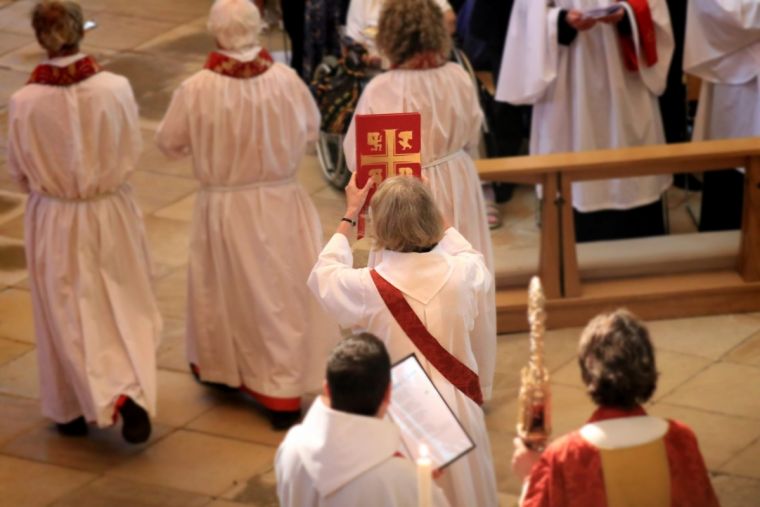Church of England chastised over 'decades of inaction' on racism

The Church of England is paying the price of 35 years of inaction on racism, with a failure to act now potentially being a "last straw" for many black and minority ethnic people, a major new report warns.
The long-awaited report from the Archbishops' Anti-Racism Taskforce reiterates that "racism is a sin", but contains 47 recommendations designed to move the Church of England beyond mere apologies for its historic failures.
At present, there are just five ethnic minority bishops across the whole of the Church of England, and only nine deans, archdeacons, and senior staff - the rest being white British.
There are no ethnic minority diocesan secretaries - the most senior staff role in each diocese - or principals at its theological education institutions at all.
Yet the Church estimates that 15 per cent of those who attend its services are from a minority ethnic background.
The taskforce said the Church had been "alarmingly retrograde" in representation.
"We believe a lack of intent or prioritisation, and the presence of (now acknowledged) institutional racism, have left the Church poorer for the lack of presence of all of its people at all levels of its life together," the report states.
It sets the goal to see ethnic minority representation increase by 15% across all levels of governance by 2030, with a key recommendation being the creation of shortlists for senior clergy posts that must include at least one ethnic minority candidate.
Other recommendations include the appointment of full-time racial justice officers for a five-year term in dioceses, mandatory training in unconscious bias, intercultural awareness and anti-racism, and the 'reverse mentoring' of diocesan bishops by a minority ethnic lay person or member of the clergy.
To improve participation in Synod, 10 minority ethnic members - five lay and five clergy – should be co-opted to serve as members of the General Synod.
The report goes on to say that racial inequality should not be seen as a "theological addendum", nor simply a minority concern, but rather "the work of the whole Church".
"Decades of inaction carry consequences, and this inaction must be owned by the whole Church," the report warns.
"A failure to act now will be seen as another indication, potentially a last straw for many, that the Church is not serious about racial sin.
"Disregarding a significant part of the population, and thus denying the gifts they bring for the service of the Church, is a loss to us all."
Elsewhere, the report says that the Church must decide what to do with its contested heritage, including monuments and statues connected to the slave trade.
"While history should not be hidden, we also do not want to unconditionally celebrate or commemorate people who contributed to or benefitted from the tragedy that was the slave trade," it says.
Taskforce member the Rev Lusa Nsenga-Ngoy said it was necessary to "make sure that we attend to all of what we have in terms of symbols of iconography that may be a repellent and disabling factor for everyone to participate fully in the life and structures of our church."
The taskforce was established last year in the wake of Black Lives Matter protests across the UK after the death of George Floyd.
It followed an admission by the Archbishop of Canterbury, Justin Welby, that the Church of England was "still deeply institutionally racist".
Co-chaired by Rev Arun Arora and Rev Sonia Barron, the taskforce was asked to review past reports and recommendations relating to racism. Over several months, the team examined a total of 25 reports spanning the last 36 years.
Rev Arora said the publication of the report must be more than a "remedial box-ticking" exercise for the Church, and that if implemented, the recommendations would help it "recover its prophetic voice" in the area of racial justice.
"It will be my hope that this report will be a watershed moment in the Church's journey towards racial justice, that it will be a huge opportunity in enabling the Church not only to fulfil the promises made in the past but to outdo those promises through coordinated and concerted action which is based entirely and wholeheartedly in gospel values," he said.
Welcoming the report, the Archbishops of Canterbury and York said they received all of the recommendations and would work to implement five "immediately", including the establishment of a Racial Justice Commission and a Racial Justice Directorate to take the work on racial equality further.
They said, "Racism is a sin. Of this, we have no doubt. Anything which diminishes the value and beauty of each individual person, made in the image of God, is sinful. There is no place for it in the world, and we are determined to make sure there is no room for it in the Church.
"But it is here. We have seen, time and time again, people being bullied, overlooked, undermined and excluded from the life of the Church, from the family of God. It breaks our hearts, and we are truly sorry."
They added, "We hope we will be the generation to halt this cycle of inaction. We pray for the wisdom, courage and grace to be leaders who will bring real change."











